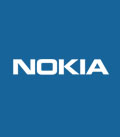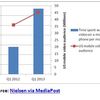LTE is the future of the network. That much is no longer in dispute in dispute.
Mobile network operators are embracing IP-based networks, and the numbers prove it. By the end of 2013, predicts the GSMA, there will be 260 commercial LTE networks in 93 countries.
“Telecom operators like IP-based networks because they are interoperable and flexible,” noted Patrick McCabe, Senior Product Marketing Manager, Alcatel-Lucent, in a recent TechZine article, 3 Reasons for an IP-Optimized Mobile Gateway. “This makes them easy to modify as new IP-based functions, features, and applications become available.”
But getting there could have some bumps unless mobile network operators improve their mobile gateways, leveraging enhancements to their wireless packet cores. The mobile gateway needs to be IP-optimized if it is going to deal with the deluge of traffic that has begun and will only get worse as users get their hands on the fast speeds that come with LTE.
In particular, packet core signaling is one of the challenges that operators will face with their existing mobile gateway equipment.
Alcatel-Lucent and its research arm, Bell Labs, have shown conclusively that packet core signaling volumes, even in the early stages of LTE deployments, are significantly higher than those from 2G and 3G networks. Indeed, the sheer volume will be a challenge. The rate of data use will grow more than 15,000 petabytes at a 90 percent compound annual growth rate through the end of 2016.
Further, there will be a large shift in the requirements of the data plane for most networks as they shift to the better performing but more deterministic quality-of-service (QoS)-driven infrastructure. Voice-over-LTE (VoLTE) is a good example of the increased requirement needs for the data plane.
“I believe this move to LTE networks will overwhelm the legacy mobile gateway,” wrote McCabe. “Most existing mobile gateway products were developed when control and data rates were low enough that the scalability of both could be concurrently handled by common CPU-based forwarding architectures. These architectures often traded off control plane scalability with data plane scalability. Increase one and the other falls.”
What is needed is an architecture that separates the data plane from the packet core signaling.
“The IP-Optimized MGW needs to be built for scalability and growth of packet processing demands,” noted McCabe. “The The MNO must be assured that performance will not suffer as the platform is pushed to its stated limits on number of bearer channels, throughput, SDFs and other parameters.”
IP-based networks bring many benefits. However, they also show that there are substantial challenges ahead and that care must be taken to assure appropriate upgrades are in place and that deployments are done correctly to avoid major challenges as the data storm now hitting wireless networks only increases in ferocity.













